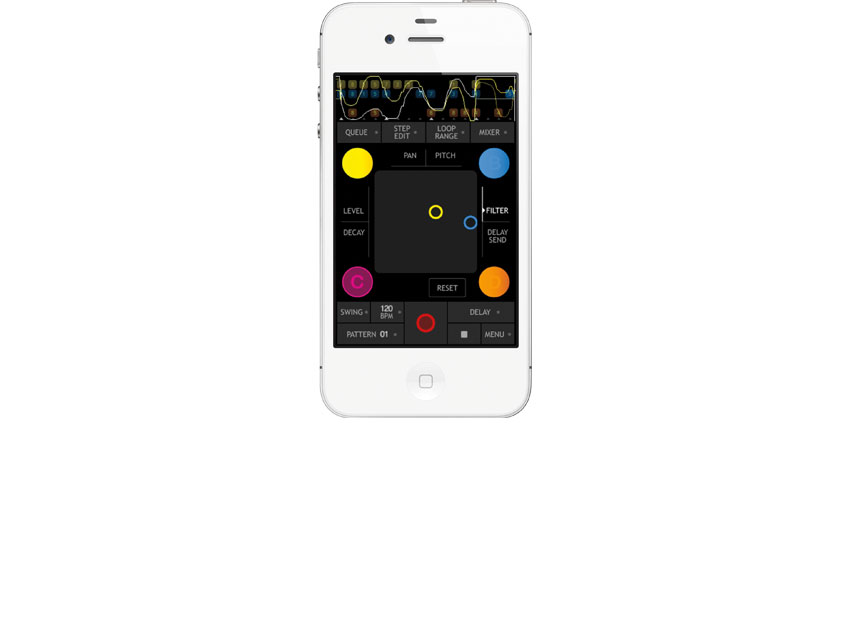MusicRadar Verdict
Zaplin Music have created something rather special with TriqTraq. The live sequencing fundamentals are sound, and the polyrhythmic loop manipulation is awesome. Buy it!
Pros
- +
Great design, sound and loop manipulation. Bargain price. Inspires desktop projects.
Cons
- -
No audio export yet (it's on the way).
MusicRadar's got your back
Yet another bargainous groovebox for iPhone, but this one has two big things in its favour. First, its design and architecture are impressively different; and second, it can do pretty amazing things in terms of looping.
TriqTraq is a four-channel looping mini DAW with a small set of electronic drum, percussion, bass and lead samples built in plus the ability to load your own (via iTunes only, disappointingly). Patterns are a maximum of 16 steps long, although up to 16 of them can be strung together in a 'queue'.
Recording patterns is as simple as selecting a channel (A-D), hitting Record and tapping the eight sample-loaded pads, or manually entering notes in Step Edit mode. Each channel is monophonic, but with two channels used for drums, one for bass and one for a lead sound, relatively dense arrangements can be crafted easily enough.
Each channel can have a low-pass filter, delay and pitchshifter (with chord snapping) applied to it, and all of these processes can be automated, as can level, decay, pan, and project tempo and swing. Perhaps the best thing about TriqTraq, though, is that the loop length/range for every channel's note sequencer and each automation envelope can be set independently. So, you could have a channel playing back notes in a 13-step loop, with a filter sweep looping over nine steps, and the pitch envelope running the full 16. Loop playback speeds can also be multiplied.
The polyrhythmic mayhem that results from all this is quite amazing. Unlinking the pitch envelope is particularly effective on bass and lead parts, generating unpredictably evolving melodies that really can inspire larger desktop projects (although audio export isn't yet in place - coming soon, we're told).
Want all the hottest music and gear news, reviews, deals, features and more, direct to your inbox? Sign up here.
Computer Music magazine is the world’s best selling publication dedicated solely to making great music with your Mac or PC computer. Each issue it brings its lucky readers the best in cutting-edge tutorials, need-to-know, expert software reviews and even all the tools you actually need to make great music today, courtesy of our legendary CM Plugin Suite.

